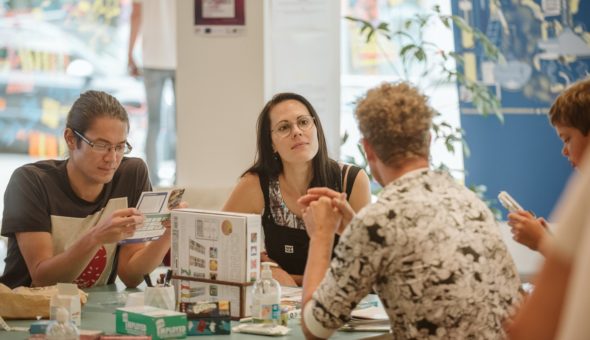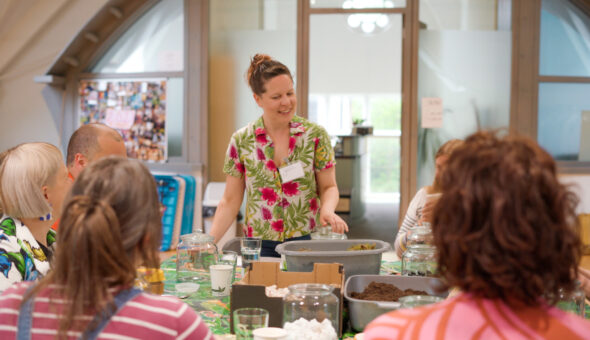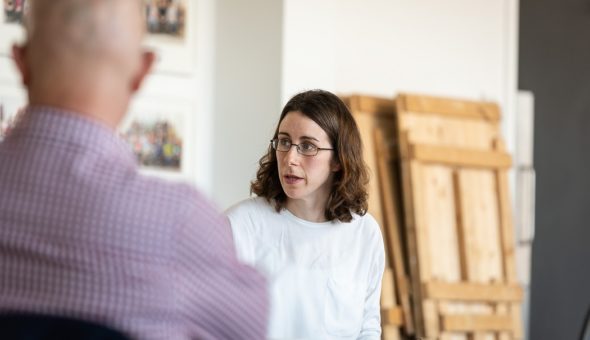With news that the Participatory Funding allocation from Research England has been awarded to the University for a further two years, we wanted to reflect on our findings from what is now phase one of ParticipatoryResearch@Bath.
Investigating the participatory research culture
With the allocation of Participatory Research funding from Research England for 2021/2022, we developed a six-month project that aimed to investigate the current culture of participatory research at the University. Between March and August 2022 we delivered a number of interventions including; carrying out internal scoping and external benchmarking research, community consultations, training, and piloting small-scale community brokerage activity. We used a working definition of participatory research - an approach to research that involves citizens in the creation of knowledge - research with/by/for people.
What we found out
Our work over the last six months has told us lots of rich details about participatory research activities. There are four headline findings from this work:
- A participatory research approach, as a mindset towards research, is not consistently defined and not used equally across disciplines.
- There was a significant and wide acceptance from researchers from a wide range of different disciplines at the University that involving people in the research process can be an important feature of high-quality and meaningful work.
- Researchers told us they need greater institutional support to enable them to work effectively with citizens in their research.
- Communities and public groups told us that there were limited access points to the University and as an outsider, their view and perception of the University are often limited by that experience.
This is all good learning, but we're not really surprised by these findings based on what we know from our own and other institutions' work with communities over the years.
It's reassuring that the suggestions from researchers for more and better institutional support - access to funding, training and professional development, resources and people – are the sort of things we have experience delivering from our culture change work around public engagement with their research.
Also, what communities told us about how their view of the University is shaped, for example living next door to a student or attending a public lecture, again isn't surprising. In those conversations, there was very little individual or collective understanding of research, what research is, how it’s funded, who does it, who benefits from it, and who regulates it are largely invisible. This is something we've heard through our everyday informal conversations with people and communities.
The findings were also reassuring as we know how we can deliver activities that can act and make positive changes for researchers and communities. The activities to build both researchers' and communities' skills and expertise will form part of phase two of the project.
Emerging areas
There were a few areas that emerged as part of the work that we felt were novel insights for both us at the University and also for the sector more generally. They were:
There is a high degree of emotional labour involved in those research projects that are authentically participatory. The act of sustaining a relationship is hard in and of itself especially when it’s done in a professional capacity for researchers and for citizens in a personal capacity. How to support the welfare and wellbeing of everyone involved as well as manage this emotional labour is something that we felt was underdeveloped and not very well understood.
How citizens can/should be embedded in the broader research ecosystem is not well understood. Much of the focus for work on participatory research is on the conduct of research projects themselves, and this is well understood. However, research projects are embedded in a broader system which includes funding, governance, and impact. It is much less well understood as to how participatory principles of involving citizens can/should be embedded into the wider system.
If participating in research is viewed as something different to ‘work’ then other ways to reward and recognise contributions should be developed at the University. Being paid to contribute to research was an issue that was contentious for some people for several reasons including its impact on state benefits and tax status. While we very much support experts by experience being equal contributors to research and are very supportive of people being employed in meaningful roles at the University, we are concerned that as a measure it is crude and serves to reinforce the transactional nature of relationships in research.
Phase two
There are lots of activities we’re planning on delivering as part of phase two of ParticipatoryResearch@Bath in response to these findings. This next phase will build on these insights and aim to create and enhance the conditions for participatory research at the University to flourish. We’ll share them here on the blog, so watch this space.
More detailed findings from phase one of the project, including the benchmarking and scoping reports can be found on the ParticipatoryResearch@Bath webpages.
If any of this resonated with your experience we’d love to chat and compare notes, drop us a line, public-engagement@bath.ac.uk
Dean Veall is Deputy Head of Public Engagement at the University of Bath.
Respond



